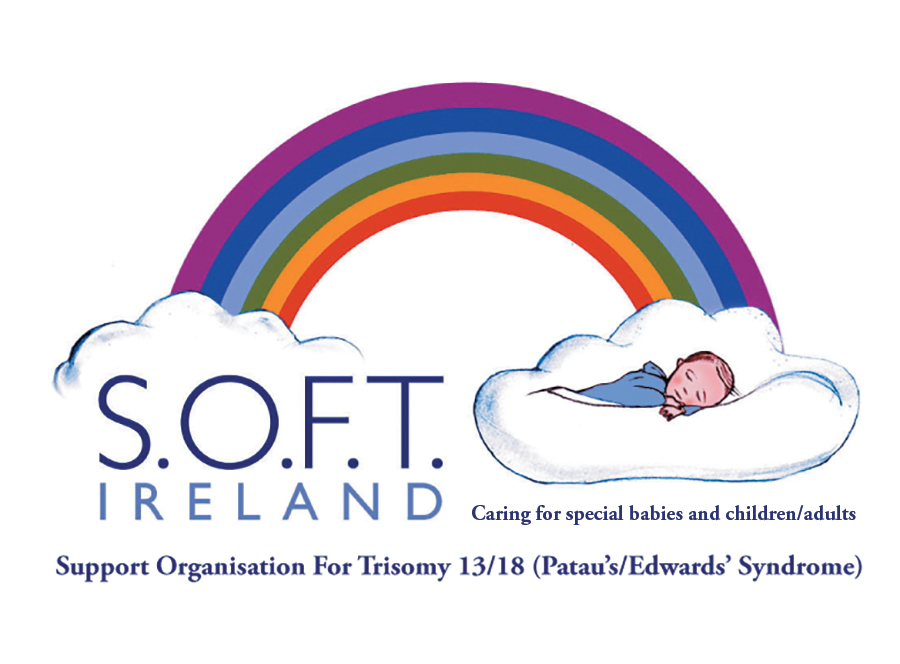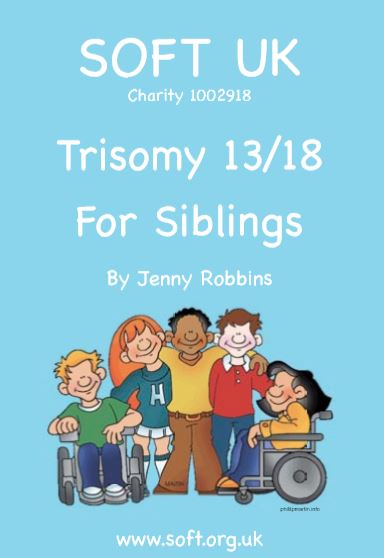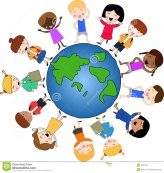
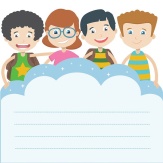
Bereavement & Children
Children are always affected by a death in the family. Each child will grieve differently, depending on their age, maturity, personality, and experience. Even very young children will realise that something is happening in their family.
Various problems may emerge with your children. For example some children may develop vague physical symptoms of feeling unwell. Others may develop stomach aches, headaches, or have episodes of bed-wetting, tantrums or tearfulness. At school a child may not progress as normal, be disruptive in class or have difficulty concentrating. Other children can become sullen, withdrawn, and do not communicate well with their parents. On the other hand, your son or daughter may adopt the role of being perfect and cause no problems.
Like adults, children and adolescents can experience the different stages of grief – denial, shock, anger, guilt, sadness and feelings of loss and loneliness. In the beginning the child may not accept that their baby brother or sister has died. In time the child will come to accept that he/she will not return.
Finally, comes the acceptance of the loss and a letting go of the deceased. At this point children will reinvest more in their lives, although there may be upsets relating to the death.
Older children and adolescents tend to mask their feelings and their grief can become an unhealthy burden. They may worry about death in general, their own death and that of their parents. Like adults, they search for a meaning for death. Adolescents may find it difficult to communicate the grief they are feeling with their parents but may do so with a friend. If the older child or adolescent has been a caregiver the sense of separation will be greater.
Bereaved children have four basic needs:
- Information
- Reassurance
- Involvement
- Expression of feelings.
Although you may fear for the psychological well-being of your child, research has shown that children are not necessarily damaged by the experience of death, provided they have correct information, support and understanding shown to them. It is important for children to be involved in all that is happening when their brother or sister dies. They will gain comfort in the future from knowing that they were important enough to be involved. In fact, children who do not have the opportunity to be involved or discuss what is happening may later have regrets.
Suggestions for dealing with bereaved children
It is often easy to misinterpret the signs and think your child is not grieving and does not need special consideration. For example children will often resume play and other activities in a seemingly heartless manner.
Keep the following points in mind when dealing with bereaved children whether they appear to need your help or not:
- Talk to your children openly about the death of their brother or sister and use the baby’s name.
- Speak openly about your own grief and do not be afraid to cry in front of your children.
- Use proper terminology when speaking to children. For example, do not say “your sister has gone to sleep”, instead say that she has “died”. Otherwise your child may become fearful of sleeping.
- Do not confuse religious and medical reasons. Do not say, for example, that ”God wanted a little angel”. Your child may be afraid that God will want him or other family members.
- Involve your children in the funeral service even at a young age. Explain the procedure clearly to them and the importance of their role. They too need to say “ Goodbye” to their brother or sister.
- Children often feel insecure after a bereavement. They need love, support and companionship. Provide a sense of security by having the same routine and rules as existed previously. A little special time with each child or a family day out will help.
- Allow your children to cry and express their emotions. They can be encouraged to express their feelings by drawing or writing.
- Inform the teacher at school and check from time to time if there are any problems.
Parents may be so preoccupied with their own grief that they may not be aware of the unhappiness of their children.
Sometimes, because their own grief is so intense, it may be appropriate to ask someone close to the child, i.e. close friend or relative to take on a supportive role. Your family doctor, health visitor, or public health nurse will understand what you are going through as a family and can offer support and advice.
Do not feel guilty because you cannot meet all the needs of your child. Remember a child has his or her own resources and eventually you can all be strengthened by the experience.
Guidelines
- Share your grief with your children
- Encourage them to share their feelings with you
- Express your love to your family
- Make time to listen and talk
- Answer questions with honesty
For further reading link to SOFT UK’s Trisomy 13/18 For Siblings
SOFT UK Sibling Support Booklet
Why Trisomy 13 or 18?
Babies have been born with trisomy 13 and trisomy 18 since the beginning of time, but it was only in 1960 that Dr. Patau and Dr. Edwards identified the respective features of these syndromes. Both syndromes are the result of an extra l3th or l8th chromosome, respectively, being present in each cell.
We know what happens, but in the majority of cases nobody knows why a baby is conceived with trisomy 13 or 18. Parents should not feel that anything they did or failed to do was responsible for their baby’s chromosomal disorder.
One in four of all pregnancies ends in miscarriage and a high proportion are thought to be caused by a chromosomal disorder. A high proportion of trisomy 13 and trisomy 18 pregnancies end in miscarriage within twelve weeks of conception. It is therefore quite rare for such a pregnancy to continue to full term. The incidence of trisomy 13 is about 1 in 10,000 of total births while that of trisomy 18 is about 1 in 2,500 of total births. As the female X chromosome is more viable, there are more girls born than boys.
Remembering our baby ideas to consider for younger children

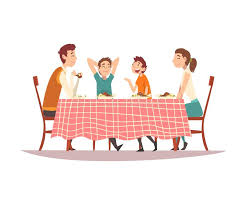
……..We can talk about our baby that we will always love.
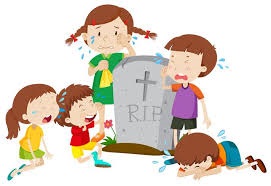 …..It is very sad and we are allowed to shed a tear.
…..It is very sad and we are allowed to shed a tear.
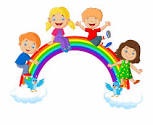 ..We can shed a tear but we are open to moments of joy as well.
..We can shed a tear but we are open to moments of joy as well.
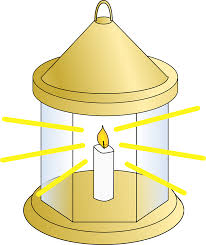 .We can light a candle, write a tribute or say a prayer
.We can light a candle, write a tribute or say a prayer
*****

Irish Childhood Bereavement Network
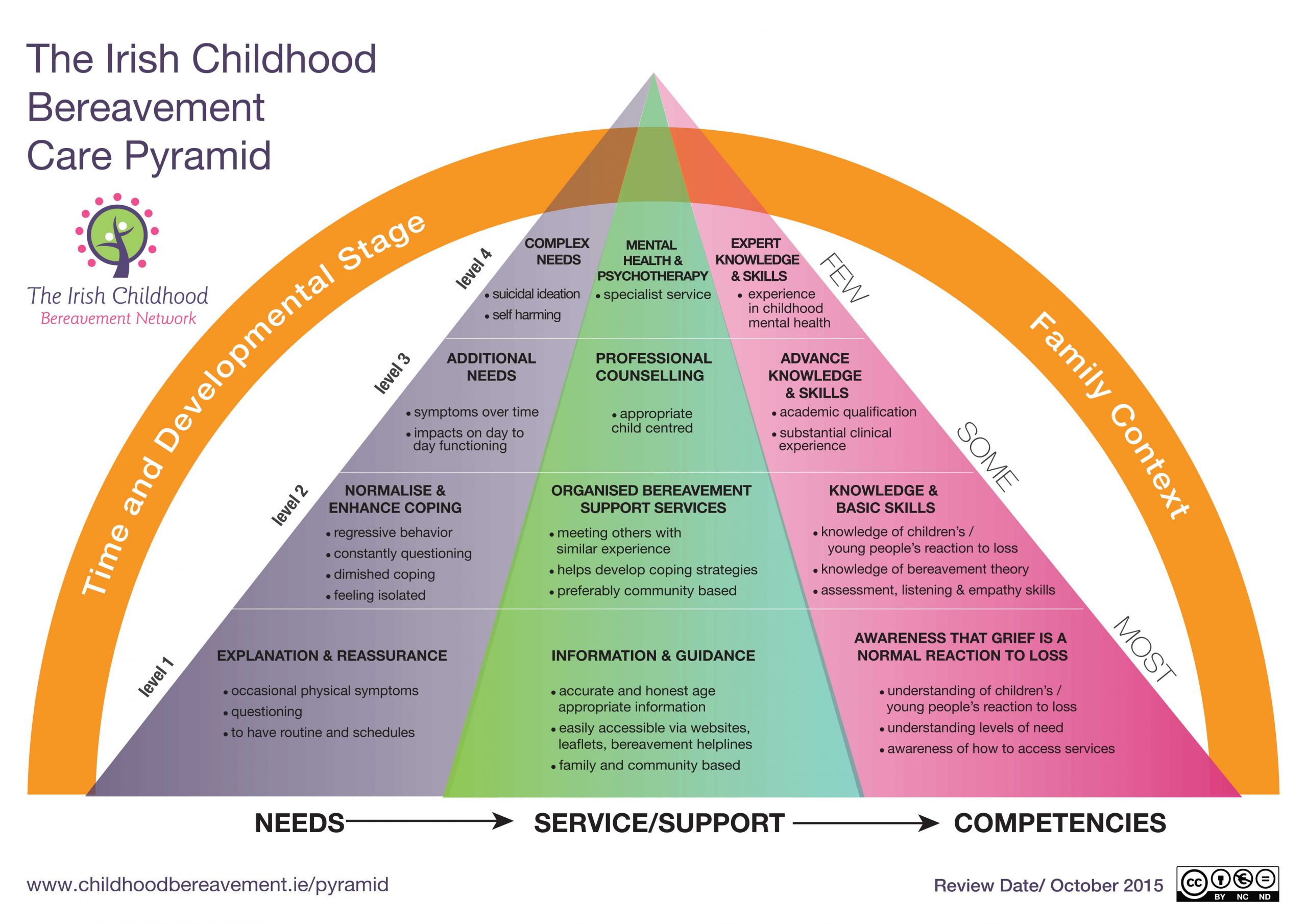
The Irish Childhood Bereavement Network (ICBN) was founded in 2012 to act as a hub for those working with bereaved children, young people and their families. Upon its establishment five key priority areas were outlined:
Support professionals to deliver high quality and accessible bereavement support;
Signpost families and carers to a directory of bereavement support services;
Inform the general public regarding issues involved in childhood loss;
Advocate for bereaved children, young people and those supporting them;
Generate new ideas and approaches to improving bereavement support for children.
In 2015 the ICBN developed the Irish Childhood Bereavement Care Pyramid. The pyramid identifies the needs of ‘most’, ‘some’ and ‘few’ bereaved children. It encourages adults who care for bereaved children to understand that, in most situations, children can be supported by providing accurate information and emotional support through their family and community. The pyramid further identifies the types of services appropriate for ‘some’ and ‘few’ children who have extended needs and will require support outside the home.
